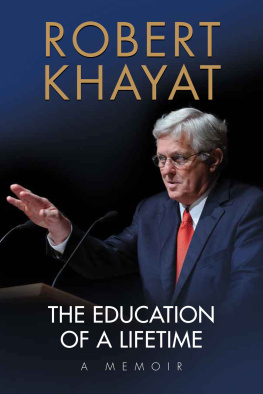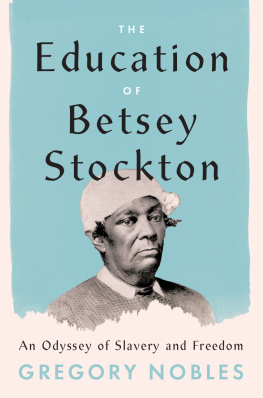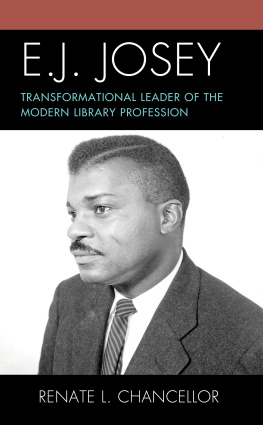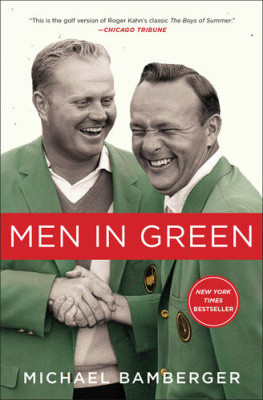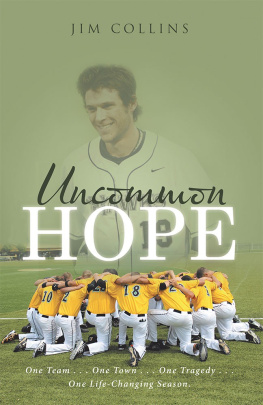The Education of a Lifetime copyright, 2013, Robert C. Khayat. All rights reserved. No part of this book may be reproduced without the express, written consent of the publisher except in the case of brief quotations embodied in critical articles and reviews.
For information contact Nautilus Publishing, 426 South Lamar Blvd., Suite 16, Oxford, MS 38655.
In some instances, names of individuals have been changed in the interest of privacy.
Front cover design by LeHerman Payton. Front cover photo by Robert Jordan
Library of Congress Cataloging-in-Publication Data has been applied for.
the greatest contributions to mankind.
Robert C. Khayat
Chancellor, the police officer said as he walked through my office door, we need to talk.
I stood, took off my glasses, and invited him to have a seat.
During the last four months our campus had become a circus and all eyes were on us. Not only were we under scrutiny from The New York Times , The Los Angeles Times , and the major television news networks, but we were also caught in the crosshairs of the Ku Klux Klan, the Heritage Defense Committee, and a band of individuals who still called themselves the Confederate States of America.
On February 28, 1997, media reports broke nationwide that we had hired a consulting firm to help us understand how we were perceived by the outside world. The review was designed to be comprehensive, including a look at school symbols. But there was only one thing people wanted to talk or write or report about the Confederate flag.
The Lyceum, a stately 149-year-old, Greek Revival style building that housed my office, was swarming with University Police Department officers. They had recently directed our administrative staff to wear surgical masks and latex gloves when opening the mail. The letters, which came from every state in the union and even some foreign countries, accused me of cultural imperialism and ethnic cleansing . The writers used words like revile and nauseate and disgust to describe their feelings about me. One writer encouraged me to resign and go someplace where Id be appreciated... like Hell. Another group had envelopes custom-printed with the phrase Stop the Lynching of Ole Miss. Stop Robert Khayat from destroying our university .
The police officers divided the hate mail into different bins marked KKK, Heritage Defense Committee, and CSA.
But it wasnt just letters that arrived on campus. Protesters and radicals from across the nation descended on the Lyceum, the Circle, the Grove and, of course, the Confederate monument. A group from Georgia wore Civil War battle regalia and marched around the loop. Another gentleman stood under the marble statue waving a huge Confederate flag and yelled, Your Chancellor is killing the heritage of the South! Then he called on Ole Miss students to join him in seceding from the United States. One of Mississippis own state senators protested the process by staging a beheading. A man dressed in a black robe and hood (ostensibly portraying me) dramatically chopped off the head of a man dressed as Colonel Rebel.
The officer handed me a one-page fax. You need to see this, he said.
I put on my glasses and picked up the handwritten note. It opened, Dear Traitor, It is clear from your last name that you were not born in the United States of America.
The writer launched into a diatribe of curses and accusations, not unlike hundreds of other letters we had received. But then it took a darker turn.
Try as you may to vilify our heritage and spit on the graves of our ancestors, but I can promise you will never live to see that day. You may think you are safe, but you will never see us coming. Your family will never see us coming.
I handed the letter back to the police officer. What do we do about this? I asked.
The officer looked down at the floor. First, we need to alert the FBI. He paused and looked back up at me. Then, we need to talk about how to protect you and Margaret. And your children.
Summer of 1956

My Moss Point football uniform
Stay off the road to Memphis, my brother Eddie said. Then he drove away.
I stood outside Garland dormitory holding my bag and watched as he disappeared around the corner . We had left Moss Point in the early morning hours and drove straight through so I could be on campus by 3:00 p.m. I wandered around for a few minutes. There wasnt another living soul in sight.
Id arrived on Saturday a day before official move-in. For nearly twenty-four hours, I didnt see or speak to anyone except the guy who took my order for a hamburger. I missed my family and friends and felt like going back home.
The next morning I was relieved, and a bit excited, to see students getting out of cars at the dorms. The campus suddenly seemed to come alive.
No one spoke to me. And I was too timid to initiate a conversation, so I just stood back and watched. I had never seen such fine suitcases. And Id never seen so many shirts, jackets, and shoes. Some of the boys owned cars, and they all seemed sophisticated.
I walked across the campus to the green space surrounded by a circular drive. I sat down on the ground at the trunk of one of the large oaks feeling very sorry for myself.
A car stopped and parked on the circle. An attractive woman got out and walked toward me. She stood above me and smiled.
You must be one of my boys, she said. I didnt understand.
Can I help you? she asked.
I knew she couldnt get me back to Moss Point, and that was what I wanted. No thank you, Maam, I said.
She didnt walk away. Whats your name? Robert Khayat.
You are one of mine, she said. Then she reached her hand down and said, Come with me.
As we walked toward the car, she told me her name was Sara Davidson. She and her husband, the freshman football coach Wobble Davidson, lived in the athletics dorm. Mrs. Davidson gestured for me to climb into the backseat of her car.
I settled in back, and Sara introduced me to the woman behind the steering wheel.
Robert, she said, this is Midge Kinard. She paused and added, Shes married to Bruiser Kinard.
Mrs. Kinard dropped us off in the parking lot at Garland dormitory, the same spot where my brother had left me the day before. Garland Hall, Mrs. Davidson explained, was the varsity football dormitory. She led me to her apartment and introduced me to her two young children, Don and Deb. Then she served me a big bowl of ice cream.
As I sat in the Davidsons apartment and ate ice cream, Mrs. Davidson assured me that I would make many friends at Ole Miss. She added that I was about to be part of an extraordinary football program.
Your world will be broadened by the brilliant minds of your professors, she said. Then she smiled, And theres no school in the world with prettier girls.
I told Mrs. Davidson that I had been feeling a little homesick. But she and her children made me feel welcome.
She put her hand on my shoulder. There is no better place on earth for an eighteen-year-old boy.

